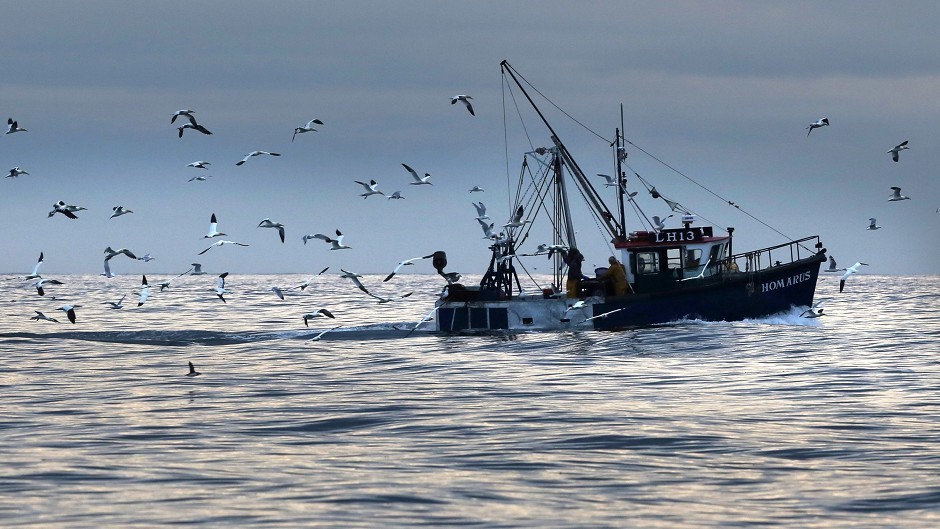The latest deal on fish catch rules was last night hailed as “positive” for Scotland following two days of talks in Brussels.
Fisheries Secretary Richard Lochhead highlighted another freeze on cuts to the number of days fishers can go to sea and “gains in key quotas” as the main wins for the Scottish fleet.
But there were fresh quota cuts off the west coast and the overall deal is overshadowed by problems linked to the introduction, from January 1, of a ban on fish discards.
Mr Lochhead said: “Securing a freeze on proposed cuts to days at sea as well as increases in key stocks is welcome news and will help our fishermen with the implementation of the challenging but transformational discard ban.
“We have secured increases in eight of our 10 most valuable stocks across the North Sea and west of Scotland.
“That is good news for the fishing fleet and gives much needed economic stability not just to them, but to our onshore sector and the coastal communities who depend on the jobs the sector provides.”
Quotas for some key Scottish stocks were agreed in earlier talks between the EU, Norway and Faroe.
In the North Sea, the cod catch limit is up by 5% and haddock and plaice by 15% but saithe, whiting and herring have all seen decreases in line with long-term management plans. The UK’s north-east Atlantic mackerel quota is down by 15%.
Last night’s deal means North Sea monkfish and prawn quotas are up by 20% and 15% respectively.
West coast fishers can catch 14% more haddock and 20% more monkfish, but their quotas for prawns, whiting and saithe are down by 7%, 14% and 15% respectively.
The haddock catch limit for the environmentally-sensitive Rockall area is up by 113%.
Scots Tory MEP Ian Duncan, a former deputy chief executive of the Scottish Fishermen’s Federation, said it was a good outcome for this country’s fleet.
Mr Duncan added: “It means that as the discard ban moves forward we are in a better position to deal with the challenges it brings.
“When I left the fishing industry the cod recovery plan was breaking the backs of fishermen off both the west and east coasts, but now we are again seeing a future for Scotland’s fisheries.”
EU Fisheries Commissioner Karmenu Vella said the newly reformed Common Fisheries Policy had “passed its first real test”.
The agreement would allow fishers to “reap more benefits in terms of higher catches,” Mr Vella added.
UK Fisheries Minister George Eustice said: “Although these were difficult negotiations, I am pleased that we were able to secure the best possible deal to ensure sustainable fisheries and a strong UK fishing industry.”
